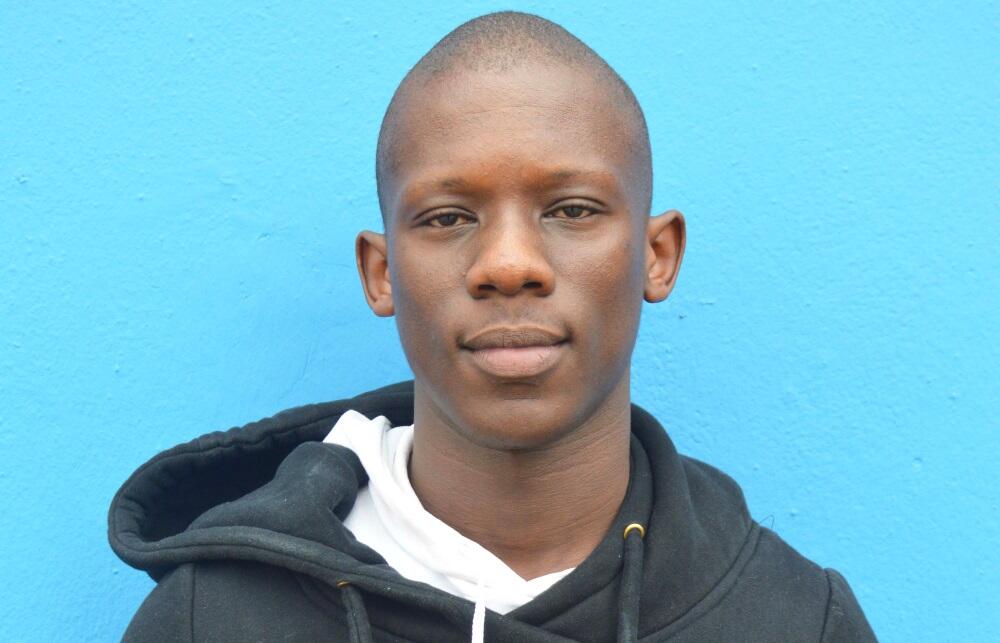SIPHOCOSINI, Mbabane, Eswatini—As the world experiences climate change, deepened social and economic inequalities, and political and humanitarian crises, young people often face circumstances in which they lack safe spaces.
But with the rise of social media and other forms of online communication, they are able to explore new opportunities for engagement and use innovations to create both virtual and physical spaces. UNFPA in Eswatini seeks to build on this momentum.
This is why we asked young people the question:
Q: What does a “safe space” mean for you in fulfilling your potential?
“As young men we should be taught how to be a man and [to be] great partners”

the project ‘Increasing Integrated HIV Services Uptake and Reducing
Gender-Based Violence through Intensive Engagement of Men and
Boys’. © UNFPA Eswatini/Thuli Dlamini-Teferi
“In safe spaces, as young men we should be taught how to be a man and [to be] great partners so that we curb gender-based violence and other social ills,” says Cebolencwala Dube, a mechanical engineering student from Siphocosini, a community on the outskirts of Mbabane, the capital of Eswatini.
He is a member of the project ‘Increasing Integrated HIV Services Uptake and Reducing Gender-Based Violence through Intensive Engagement of Men and Boys’ in his community.
“We hold discussions at designated sites where we meet other young men periodically and go through behaviour change training. As young men, we discuss many issues during these sessions. For instance, we have had a discussion on helping out our partners as we grow, and when and how to raise children,” says Cebo.
We have also had debates on gender-based violence, and how some guys believe it’s okay to hit a woman so that you ‘put them in their place’.
“We have also had debates on gender-based violence, and how some guys believe it’s okay to hit a woman so that you ‘put them in their place’. Through the sessions, guys from my community have a better understanding of why it is wrong to hit a woman. That is a safe space for us because we are able to express ourselves freely,” he says.
The project is supported by UNFPA and UNICEF implemented through a partnership with the Swaziland Action Group Against Abuse (SWAGAA) and Kwakha Indvodza.
Cebo is also a member of ENACTUS, an organization that provides entrepreneurial skills for young people at tertiary level.
“Our country is slowly changing. For instance, there is ICT in schools. Young people are taking advantage of these opportunities. I am involved in a number of projects in my community and at school. Some of these projects are already bringing in an income, even though it is not at a large scale as yet.
My one wish is that our entrepreneurial skills as young people should be strengthened and we should be provided with spaces to realize our dreams through entrepreneurship.
“I think organizations like ENACTUS should be supported to upscale what they do, even at primary school level. My one wish is that our entrepreneurial skills as young people should be strengthened and we should be provided with spaces to realize our dreams through entrepreneurship. We lack the infrastructure to implement our ideas. We need to be linked with people who have the ability to fund our ideas so that we reach our full potential,” he says.
Engaging and empowering youth in Eswatini
The Kingdom of Eswatini has about 800,000 Emaswati under 35 years old, of whom more than 350,000 are between the ages of 15 and 34 years.
This year, International Youth Day aimed to promote youth engagement and empowerment by exploring the role of safe spaces in contributing to freedom of expression, mutual respect and constructive dialogue.
Young people need safe spaces where they can come together, engage in activities related to their diverse needs and interests, participate in decision-making processes and express themselves freely.
Safe spaces may be physical or virtual, and provide opportunities for sport and leisure time activities, while deconstructing barriers of judgment, hate speech, harassment and or violence.
By Thuli Dlamini-Teferi


